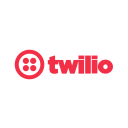Google Voice vs Vonage: Which communication tool fits your needs?
- 01Google Voice vs Vonage: overview
- 02What's the difference between Google Voice and Vonage?
- 03Google Voice pros and cons
- 04Vonage pros and cons
- 05Google Voice compared to Vonage
- 06Vonage compared to Google Voice
- 07Features comparison
- 08Google Voice vs Vonage: Which is the best for your business?
- 09Promotions on Call Centers software
- 10Alternatives to Google Voice & Vonage
Many businesses today rely on reliable communication systems to stay connected with customers, manage calls, and streamline internal operations. However, without the right VoIP (Voice over Internet Protocol) solution, companies can face dropped calls, limited features, and high costs. Fortunately, several VoIP providers offer robust solutions to meet the diverse needs of businesses.
Google Voice and Vonage are two popular options in the market. To help you determine which service is the best fit for your organization, we’ve prepared a detailed comparison of their key features, main differences, and pricing structures. Let’s dive into Google Voice vs Vonage!
Google Voice vs Vonage: overview
Google Voice and Vonage are both leading contenders in VoIP (Voice over Internet Protocol) communication solutions, each offering unique features tailored to different business needs.
Google Voice is known for its seamless integration with the Google Workspace ecosystem, making it a go-to choice for businesses already using Gmail, Google Calendar, and other Google services. It provides a simple, cloud-based phone system that works across multiple devices, offering basic calling, voicemail, and texting capabilities. On the other hand, Vonage delivers a more feature-rich VoIP solution, offering a wide range of advanced communication tools such as unified messaging, video conferencing, and CRM integrations.
Now, let’s dive deeper into the Google Voice vs. Vonage comparison to help you make an informed decision when selecting the right VoIP service for your business communications.
What's the difference between Google Voice and Vonage?
Google Voice and Vonage are both popular VoIP solutions, offering businesses essential communication features such as calling, texting, and voicemail. While both services aim to streamline business communication, several key differences between the two platforms can help guide your decision.
The primary difference between Google Voice and Vonage lies in their approach to communication services. Google Voice is a straightforward, cloud-based phone service that integrates seamlessly with Google Workspace, making it an excellent choice for small businesses already using Google's suite of tools like Gmail and Google Calendar. Its features include call forwarding, voicemail transcription, and basic texting, with a user-friendly interface that is easy to adopt for individuals or small teams. Google Voice is ideal for those seeking a simple, cost-effective solution without needing extensive customization or advanced features.
Vonage, on the other hand, is designed for businesses with more complex communication needs. It offers a broader array of features, including video conferencing, team messaging, CRM integrations, and advanced call handling options like auto attendants and call recording. Vonage’s scalability makes it suitable for businesses of all sizes, particularly those with larger teams or multiple office locations. Additionally, Vonage offers international calling capabilities that make it attractive for global businesses.
In terms of pricing, Google Voice offers competitive rates with straightforward plans, while Vonage’s pricing varies based on the number of users and the specific features a business requires. Vonage’s plans are generally more flexible, allowing businesses to customize their services as they grow.
Choosing between Google Voice and Vonage will largely depend on the size of your business and the complexity of your communication needs. Google Voice is ideal for small teams with simple needs, while Vonage is better suited for larger organizations requiring more robust communication features.
Google Voice pros and cons
What are the advantages of Google Voice?
- Seamless integration with Google Workspace: Google Voice works effortlessly with other Google services like Gmail, Google Calendar, and Google Contacts, making it convenient for businesses already using Google's ecosystem.
- Affordable pricing: Google Voice offers competitive pricing, including a free version for personal use and affordable business plans, making it accessible to small businesses and individuals.
- User-friendly interface: The simple and intuitive interface makes it easy for users of all technical levels to set up and manage their phone system.
- Multi-device support: Google Voice allows you to make and receive calls on multiple devices (smartphones, desktops, and tablets), providing flexibility for remote teams and individuals on the go.
- Voicemail transcription: Google Voice provides automated transcription for voicemails, allowing users to read voicemails as text, which can be a useful feature for busy professionals.
What are the disadvantages of Google Voice?
- Limited advanced features: Compared to other VoIP providers, Google Voice lacks some advanced communication features like call recording, video conferencing, and CRM integrations, which might be needed by larger organizations.
- No international support for free plan: The free version of Google Voice doesn’t support international calling or texting, and the pricing for international calls may be higher compared to other services.
- No customer support for free users: Google Voice offers limited customer support, particularly for free users, making it difficult to resolve issues quickly.
- Not ideal for large teams: While great for small teams, Google Voice doesn’t scale well for larger businesses that need more complex call routing, queue management, or advanced communication tools.
- Limited porting options: Porting an existing phone number into Google Voice can sometimes be challenging, particularly for business accounts, limiting flexibility when switching services.
Compare Google Voice to other tools
Vonage pros and cons
What are the advantages of Vonage?
- Extensive feature set: Vonage offers a wide range of advanced features, including call recording, virtual receptionists, team messaging, video conferencing, and CRM integrations, making it a robust solution for businesses of all sizes.
- Scalability: Vonage is highly scalable, allowing businesses to easily add or remove users and features as their communication needs grow, making it a great choice for growing businesses or large organizations.
- Global reach: Vonage supports international calling in over 60 countries, making it ideal for businesses with global operations or those looking to expand internationally.
- Customizable plans: Vonage offers flexible pricing and plan customization options, allowing businesses to choose the features they need and avoid paying for unnecessary services.
- Reliable customer support: Vonage provides dedicated customer support, including 24/7 assistance for business users, ensuring that any issues are quickly resolved.
What are the disadvantages of Vonage?
- Higher cost for small businesses: While Vonage offers many advanced features, its pricing can be relatively higher compared to simpler VoIP services, especially for small businesses that may not need all the extra features.
- Complex setup for advanced features: Some of Vonage’s more advanced features, like CRM integrations or call queues, can require a more complex setup and might need technical expertise to configure properly.
- Add-on costs: Many features that are included with other VoIP providers as standard may come as paid add-ons with Vonage, which can increase the overall cost for businesses looking to use premium services.
- Call quality depends on internet: Like most VoIP services, Vonage's call quality is heavily dependent on the strength and stability of your internet connection, which could be an issue in locations with poor connectivity.
- Contract commitments: While Vonage offers flexible month-to-month plans, some of the better pricing options may require long-term contracts, which could be a drawback for businesses seeking more flexibility.
Compare Vonage to other tools
Google Voice compared to Vonage
Google Voice and Vonage are both VoIP services, but they cater to different types of users and business needs. Google Voice is a simple, cost-effective solution, ideal for small businesses or individuals who primarily need basic call, voicemail, and texting features. It integrates well with Google Workspace, making it especially useful for teams already using Google’s ecosystem.
Vonage, on the other hand, offers a broader range of advanced features such as call recording, video conferencing, and CRM integrations. It's more suitable for larger businesses requiring complex communication solutions and global scalability, although it comes with a higher price tag.
Is Google Voice better than Vonage?
Whether Google Voice is better than Vonage depends on your specific communication needs. Google Voice excels in simplicity, ease of use, and affordability, making it ideal for individuals and small businesses that primarily need basic calling, texting, and voicemail features. Its seamless integration with Google Workspace is a major advantage for teams already using Google's ecosystem.
However, Vonage offers a more feature-rich platform, with advanced options like CRM integrations, global calling, and video conferencing, making it better suited for larger businesses or those requiring more complex communication tools. The decision ultimately hinges on your business size and communication requirements.
What is Google Voice best used for?
Google Voice is best used for small businesses, freelancers, and individuals who need a simple, affordable communication solution. It’s ideal for those already using Google Workspace, as it integrates seamlessly with Gmail, Google Calendar, and other Google services. Google Voice is particularly useful for managing calls, voicemail, and text messages across multiple devices, making it perfect for remote work and mobile professionals.
Its voicemail transcription and call forwarding features enhance productivity, while its straightforward pricing makes it accessible to users with basic communication needs. However, it may lack the advanced features required by larger businesses with more complex setups.
Can Google Voice replace Vonage?
Google Voice can replace Vonage for small businesses or individuals with basic communication needs, such as making calls, sending texts, and managing voicemail. It’s particularly effective for users already integrated into the Google ecosystem and those seeking an affordable, easy-to-use VoIP solution.
However, for larger organizations or businesses requiring advanced features like call recording, CRM integrations, video conferencing, and global scalability, Vonage remains a better option. While Google Voice offers simplicity and lower costs, it lacks the comprehensive set of tools and flexibility that Vonage provides for more complex communication and collaboration requirements.
Is Google Voice cheaper than Vonage?
Yes, Google Voice is generally cheaper than Vonage, making it a more budget-friendly option for individuals and small businesses with basic communication needs. Google Voice offers straightforward pricing, including a free tier for personal use and affordable plans for business users. It is ideal for those who require simple call, text, and voicemail services.
Vonage, while more feature-rich, tends to be more expensive due to its advanced offerings such as call recording, CRM integrations, and international calling capabilities. Businesses that require these additional features will find Vonage more suitable, though at a higher cost compared to Google Voice.
Is there a better Call Centers software than Google Voice?
Determining if there is a "better" software than Google Voice depends on your specific communication needs. Google Voice stands out for its simplicity, affordability, and seamless integration with Google Workspace, making it an excellent choice for small businesses or individuals with basic communication requirements.
However, alternatives to Google Voice like Vonage, RingCentral, and Zoom Phone may be better suited for users with more advanced needs. Vonage offers a wider range of business features like CRM integrations and global scalability, while RingCentral provides extensive video conferencing and team collaboration tools. Zoom Phone excels in unified communications with strong video and call capabilities. The "better" choice ultimately depends on your business size, feature needs, and budget.
Vonage compared to Google Voice
Vonage offers a more feature-rich and scalable communication solution compared to Google Voice, making it ideal for medium to large businesses with complex needs. Vonage provides advanced features such as call recording, CRM integrations, video conferencing, and international calling, which are crucial for companies with global operations or high-volume communication requirements.
Google Voice, in contrast, is a simpler, more affordable solution, perfect for small businesses or individuals needing basic calling, texting, and voicemail services. While Vonage is more flexible and robust, Google Voice is easier to use and better suited for users seeking a low-cost, straightforward option.
Is Vonage better than Google Voice?
Whether Vonage is better than Google Voice depends on your business's specific requirements. Vonage stands out with its advanced features, scalability, and global communication capabilities, making it ideal for businesses that need tools like call center analytics, multi-channel support, and automated customer interactions. Its ability to integrate with CRM systems and provide international coverage makes it more suitable for large enterprises or organizations with complex communication needs.
However, if your business only requires basic communication functions, Google Voice may be a simpler and more cost-effective choice. Ultimately, Vonage is better for those needing advanced functionality and robust customization options.
What is Vonage best used for?
Vonage is best used for businesses that require a robust, scalable communication solution with advanced features. It excels in supporting companies with high call volumes, international operations, or complex communication needs through features like call recording, virtual receptionists, CRM integrations, and video conferencing.
Vonage is particularly useful for larger organizations needing unified communications across multiple locations or teams. Its ability to integrate with various business applications and its global calling capabilities make it ideal for enterprises looking to streamline communication, enhance customer interactions, and support remote or distributed workforces efficiently. It’s a comprehensive tool for business communication management.
Can Vonage replace Google Voice?
Vonage can replace Google Voice, especially for businesses that need more advanced communication features. While Google Voice is ideal for small businesses or individuals with basic calling and texting needs, Vonage offers a more comprehensive solution with features like call recording, CRM integration, video conferencing, and global calling.
Vonage is better suited for larger organizations or those with complex communication requirements, such as managing multiple lines, handling high call volumes, or integrating with business tools. Though Vonage comes at a higher cost, its advanced capabilities make it a viable replacement for businesses that outgrow Google Voice’s simpler functionality.
Is Vonage cheaper than Google Voice?
Vonage is generally more expensive than Google Voice due to its advanced features and scalability. While Google Voice offers basic calling, texting, and voicemail at affordable rates, including a free tier for personal use, Vonage provides a more robust suite of communication tools such as call recording, CRM integrations, and international calling, which come at a higher cost.
Vonage’s pricing structure reflects its comprehensive capabilities, making it a better fit for larger businesses or those with complex communication needs. For small businesses or individuals requiring simpler, more cost-effective solutions, Google Voice is typically the more budget-friendly option.
Is there a better Call Centers software than Vonage?
Determining if there is a better software than Vonage depends on your specific communication needs. Vonage is known for its comprehensive VoIP features, including call recording, video conferencing, and CRM integrations, making it ideal for larger businesses with complex requirements.
However, alternatives to Vonage like RingCentral, OpenPhone, Zoom Phone, and 8x8 offer distinct advantages. RingCentral excels in unified communications with strong team collaboration tools, while Zoom Phone focuses on seamless video and call integration for remote work. 8x8 is known for its robust global calling features at competitive pricing. Choosing a better software depends on your business size, budget, and the specific communication features you need.
Features comparison
Google Voice Outshines Vonage for User-Friendliness and Accessibility
Overall, Google Voice outshines Vonage in terms of ease-of-use, making it an excellent choice for individuals and small businesses looking for a straightforward communication solution. The intuitive Google interface feels instantly familiar to anyone who has used Gmail, Google Calendar, or other Google products—unsurprising since it’s part of the same ecosystem. Navigating and managing calls, texts, and voicemails becomes a breeze, thanks to the clean, user-friendly design that Google is renowned for.
Google Voice also excels in accessibility, allowing users to switch seamlessly between devices—whether desktop, mobile, or tablet—with all conversations synchronized effortlessly across platforms. This makes it ideal for those working remotely or needing flexibility. In contrast, while Vonage is an established player with more advanced features, its interface feels slightly outdated and more difficult to navigate, particularly for users who are less tech-savvy. This gap in user experience makes Google Voice a better choice for those seeking simplicity in their communication tools.
Vonage Edges Ahead of Google Voice in Integration Capabilities
When it comes to integration possibilities, both Google Voice and Vonage provide a range of options, but Vonage holds the advantage in this area. Google Voice integrates well with Google Workspace, allowing users to connect seamlessly with tools like Gmail, Google Calendar, and Google Contacts. This makes it an excellent choice for businesses already using Google’s ecosystem.
However, Vonage offers a wider range of integrations with third-party business applications, from CRM software to collaboration tools, such as Salesforce, HubSpot, and Microsoft Teams, making it more suitable for larger organizations with diverse software needs. Additionally, Vonage’s API allows for more advanced customizations, making it highly flexible for businesses that require more robust integration across multiple platforms. This makes Vonage a better fit for companies with complex workflows and software environments.
Google Voice Excels Over Vonage with Its Unified Number for Seamless Communication
Google Voice's unified number is designed with exceptional convenience in mind, allowing users to consolidate their communication channels effortlessly. It provides a single phone number that can ring on multiple devices, including smartphones, desktops, and tablets, ensuring that users never miss a call. Whether you’re at the office or on the go, Google Voice synchronizes your calls and voicemails across platforms, making it easy to stay connected.
While Vonage also offers multi-device communication solutions, Google Voice’s implementation is more intuitive and user-friendly. Its integration within the Google ecosystem ensures that switching between devices feels seamless, especially for those already familiar with Google products. For users who prioritize simplicity and want to streamline their communication channels, Google Voice clearly stands out.
Vonage Excels Over Google Voice with Advanced Sales and Customer Engagement Features
One distinct advantage of Vonage is its ability to transform conversations into sales through advanced tools like multi-channel chatbot automation and AI-powered omnichannel experiences. These features allow businesses to engage with customers across various platforms—phone, SMS, social media, and email—fostering a seamless experience that builds trust at every stage of the buying journey. For example, a customer can start a conversation on social media and seamlessly transition to a phone call or email, with all interactions synchronized.
In contrast, Google Voice lacks these advanced customer engagement and automation tools. Its focus remains on basic calling and voicemail services, which are insufficient for businesses seeking to boost sales through intelligent, automated interactions. For companies looking to enhance customer experiences and increase conversions, Vonage is the superior choice.
Google Voice Excels Over Vonage with Convenient Voicemail Transcription
When it comes to voicemail transcription, Google Voice steals the show with its automatic transcription feature that converts voice messages into text and sends them directly to users' inboxes. This allows users to quickly read and respond to messages without needing to listen to lengthy voicemails, which is particularly useful for busy entrepreneurs and professionals. For example, a business owner can scan through multiple messages while in a meeting, saving time and enhancing productivity.
Vonage, while offering robust communication tools, doesn’t provide the same level of convenience for voicemail handling. Its voicemail system requires manual listening, which can be time-consuming in comparison. For entrepreneurs seeking a fast, efficient way to manage voicemails, Google Voice clearly has an edge.
Vonage Excels Over Google Voice with Advanced Contact Center Analytics
Vonage’s Contact Center Analytics surpasses Google Voice by offering deep insights and actionable data that empower businesses to make informed decisions. With metrics such as agent performance, customer satisfaction scores, and even revenue generation linked to call interactions, Vonage provides a comprehensive view of communication effectiveness. For example, a business can monitor how quickly agents resolve issues or analyze call times to improve customer service strategies.
In contrast, Google Voice lacks these advanced analytical tools, offering only basic call logs and voicemail tracking. For businesses that rely heavily on analytics to optimize operations, increase efficiency, and drive revenue, Vonage is the clear winner in delivering detailed and actionable insights.
Both Google Voice and Vonage Offer Robust Text Messaging Capabilities
Both Google Voice and Vonage provide comprehensive and efficient text messaging features, but they serve different purposes. Google Voice allows users to send and receive SMS and MMS messages directly from their Google Voice number, making it convenient for personal use or small businesses needing basic messaging functionality. Users can manage texts across multiple devices, ensuring communication is always synced.
Vonage, however, takes text messaging a step further with its SMS API, enabling businesses to personalize customer interactions and automate customer service responses via text. For example, businesses can send appointment reminders or promotional messages automatically. While both tools excel in their text messaging capabilities, Vonage’s API gives it an edge for businesses seeking more customized, automated interactions with customers.
Subscribe to our newsletters.
No FOMO here. Stay up-to-date on all the latest deals and news with our monthly newsletter straight to your inbox like 122,000+ entrepreneurs (+ Get 10% off on on our Premium Membership!)
Google Voice vs Vonage: Which is the best for your business?
Google Voice is the best tool for you if:
- You need an affordable and simple communication tool that integrates seamlessly with Google Workspace, allowing you to manage calls, texts, and voicemails across Gmail, Google Calendar, and more.
- Your business requires basic calling, texting, and voicemail functionality, without the need for complex features like call recording, CRM integration, or advanced customer service tools.
- You want a user-friendly interface that feels familiar if you’ve used other Google products, ensuring minimal learning curves for your team and streamlined setup across multiple devices.
- You need to manage your communications on the go, with the ability to switch between desktop, smartphone, and tablet while keeping all your conversations synced.
- You are a small business owner or freelancer who values voicemail transcription, allowing you to read messages conveniently via email rather than listening to audio recordings.
Vonage is the best tool for you if:
- You need a scalable communication solution with advanced features like call recording, CRM integrations, and video conferencing to support your growing business or large teams across multiple locations.
- Your business relies heavily on analytics and data-driven decisions, requiring detailed call center metrics like agent performance, customer satisfaction, and revenue generation to optimize operations and customer interactions.
- You manage international operations or need robust global calling capabilities, as Vonage offers flexible plans that support calls and messaging in over 60 countries with excellent quality and reliability.
- You want to automate customer interactions through Vonage’s SMS API, which enables personalized text messaging, appointment reminders, and automated customer service responses across multiple communication channels.
- You require 24/7 customer support and reliable service uptime for mission-critical business communications, ensuring any issues are resolved quickly to avoid interruptions in your day-to-day operations.
Alternatives to Google Voice & Vonage
Promotions on Call Centers software
Start saving on the best SaaS with Secret.
Secret has already helped tens of thousands of startups save millions on the best SaaS like Google Voice, Vonage & many more. Join Secret now to buy software the smart way.









